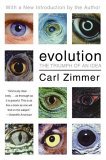Is our species, Homo sapiens, still evolving? No doubt all of you have wondered about this at some point (unless you don't believe in evolution, in which case you have a different puzzle to scratch your heads over). And with human technology constantly coming up with ways to allay any selective pressures, it is easy to think that we've stopped evolution in its tracks as far as our own species is concerned. But have we, really? Is it even possible to pause evolution? Last month, Seed magazine had an interesting article, "How We Evolve" describing the state of current knowledge about human evolution and how modern genomics tools are helping to shed light on this question:
When the previous generation of life scientists was coming up through the academy, there was a widespread assumption, not always articulated by professors, that human evolution had all but stopped. It had certainly shaped our prehuman ancestors — Australopithecus, Paranthropus, and the rest of the ape-men and man-apes in our bushy lineage — but once Homo sapiens developed agriculture and language, it was thought, we stopped changing. It was as though, having achieved its aim by the seventh day, evolution rested. "That was the stereotype that I learned," says population geneticist and anthropologist Henry Harpending. "We showed up 45,000 years ago and haven't changed since then."
The idea makes a rough-and-ready kind of sense. Natural selection derives its power to transform from the survival of some and the demise of others, and from differential reproductive success. But we nurse our sick back to health, and mating is no longer a privilege that males beat each other senseless to secure. As a result, even the less fit get to pass on their genes. Promiscuity and sperm competition have given way to spiritual love; the fittest and the unfit are treated as equals, and equally flourish. With the advent of culture and our fine sensibilities, the assumption was, natural selection went by the board.
So what can genomics tell us?
John Hawks started out as a "fossil guy" studying under Milford Wolpoff, a paleoanthropologist who is the leading proponent of the faintly heretical multiregional theory of human evolution. Coming to genetics from such a background has perhaps given Hawks the stomach to wield unfashionable hypotheses. In December of last year, he, Harpending, and others published a paper whose central finding, that evolution in humans is observable and accelerating, would have been nonsensical to many geneticists 20 years ago. Up to 10 percent of the human genome appears to be evolving at the maximum rate, more quickly than ever before in human history.
Go read the rest of the story. Especially the frightening scenarios towards the end.













0 comments:
Post a Comment